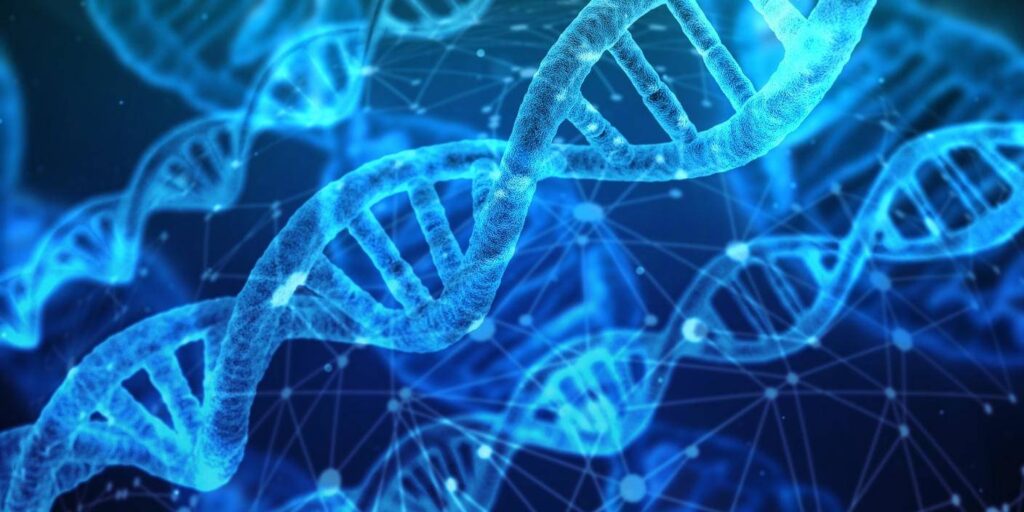Perhaps you’ve tried every diet in the book and nothing seems to work for you. You’ve ate the superfoods. You’ve eliminated the carbs. You’ve hit a plateau with your weight loss. It might be time to consider genetic testing.
Is Genetic Testing for You?
I was a little skeptical when I first did my own genetic testing. I thought I already had a good idea as to what my body needed. But I was struggling with a plateau and unable to drop any more weight despite all my efforts.
I figured I’d give genetic testing a shot. At the very least I’d have a new perspective on a different form of testing. The results that came back turned out to carry some significant insights!
What it Tells Us
Genetic testing helps determine which diets and exercise match a person’s specific genetic makeup.
Genetic testing looks at how your body responds to fats, carbohydrates and proteins. It can tell you if you are predisposed to having a sweet tooth or difficulty with stopping snacking.
Genetic predispositions to overeating, the ability to taste bitter, lactose and gluten intolerances are just a few of the things genetic testing can tell you about yourself in addition to certain vitamin and nutrient deficiency predispositions you may have.
Having an insight into your genetic makeup can help you learn more about why you have certain habits, which foods your body tends toward desiring, and which foods are better for your specific genetic makeup.
Exercise
Genetic testing helps us determine what types of exercise we might benefit the most from. Might we do better with long term endurance training or sprint styles of training? Do we benefit from cardiovascular types of exercises or weight training?
Genetic testing also looks at how our body responds to exercise. This is rated in terms of weight loss, blood pressure, cholesterol, body fat and insulin sensitivity.
Genetic testing also helps determine how fast someone might gain weight after losing weight. Also genetic testing can tell you how prone you are to obesity plus how slow or fast your metabolism is.
Different Diets
There are so many different kinds of diets out there. Determining the best one for your particular genetic makeup is important.
I have a lot of patients who come into my office who feel like they’ve hit a plateau with their dieting or exercise plan. One of the best ways to address this is to assess what is going on with their genetics.
We’ve got the whole ketogenic thing. We’ve got the autoimmune paleo we’ve got the paleo. Essentially, these are great diets but they don’t work for everybody. There are reasons why, and that is where genetic testing comes in.
Does your specific genetic makeup do better with less carbs or more? Less protein or more protein? What kinds of fruits, vegetables and fats does your body need? Genetic testing can give you this information.
Not an Exact Science
Genetic testing does not give you an exact formula to follow. It’s not foolproof, but it does help to get you on the right track.
Different genetics adapt differently to certain environments, stress and things of that nature. It’s important to consider all of the variables when determining the best plan of action for each patient.
The Blood Type Diet Was a Big Deal Before Genetic Testing
Back in the early 2000s and late 90s, one of the popular things to do was to shape your diet around your blood type. You could say this was a kind of a precursor to having a diet based on genetics.
In 2003, sequencing of the human genome was completed. Since then we’ve learned a great deal about genetics. We have a long way to go yet, we are able to use what knowledge we do have to help people determine a healthy diet and exercise plan, based on genetic testing results.
What I typically do with my patients is treat their tests as a guide, and then build in what we know about their stress factors, what we know about their environment, what we know about their nutritional deficiencies what we know about their gut microbes.
I then put all these things together to develop a complete picture of the patient.
Approaching Weight Loss
When addressing weight loss, genetic testing helps us to look at a person’s organic acids, and by that I mean their metabolism. How do they metabolize carbohydrates, fats and proteins?
A huge factor in weight loss and exercise is how well your body processes proteins into amino acids. Organic acids testing allows you to determine if you have a sufficient amount of certain amino acids and the vitamins used to metabolize them in your body.
The body uses amino acids to repair itself after exercise and everyday activities. Organic acids testing can tell you if your body is metabolizing and absorbing amino acids.
Determining how well you process good fats and carbohydrates is also key for determining factors preventing you from losing weight. The intricate balance of the beneficial bacteria in your gut is also important to assess for a complete analysis of your metabolism.
My Own Genetic Testing
In doing my own genetic testing, I found that I do well on a diet that is low in fat as opposed to a diet that’s low in carbohydrates.
This is ironic in that I’ve spent a lot of my time touting the higher good fat diets along with low carbohydrate diets.
I admit that I have lost weight on low carbohydrate diets. However, I think that was purely due to caloric restriction and cutting out nutrient void carbohydrates. I will say though that I never got to the point where I looked my best.
When I did look my best, it was when I lived in downtown Seattle. I was walking every day. I barely drove. And I was eating a lower fat diet. I was eating a lot more white fish, whole grains and veggies.
When I switched to doing more of a Keto diet where I was keeping my carbohydrates down to 20 grams or less a day I started having some issues with my thyroid and adrenal glands.
So looking back on this time in my life, I find it interesting that my genetic testing showed that I am better suited to a low fat diet. By no means does this low fat diet higher carbohydrate diet mean eat refined sugars like they are going out of style.
We’re talking 8-10 servings of fruits and vegetables a day which is pretty cool. That’s a good amount. And honestly I can tell you that prior to genetic test, I was not eating that many fruits and veggies a day. It just wasn’t happening. I do have to have a smoothie a day with at least 4 cups of veggies in it to get in my quota but it’s easy to do.
These days I make a point to consume whole grains and limit my processed carbohydrates. I’ve found that I have definitely had a lot of improvements since following this type of plan since my genetic testing.
But there is a caveat. I have a long history of gut issues. I have to pressure cook my grains, and I still don’t do well with beans due to the lectin content. I used to be addicted to sugar free gum, fake stevia (½ corn ½ stevia) and drank plenty of Coke Zero on and off prior to my genetic testing. And let’s face it, that stuff trashes your gut! My advice to all out there is that if it’s not in it’s form closest to nature it doesn’t deserve to be in your body.
Learn More About Gut Health and Weight Loss
So much of what determines our health has to do with the health of the bacteria in our digestive system. It’s this good bacteria that breaks down the food, and aids our body in getting essential nutrients into our bloodstream.
To learn more about good bacteria and how proper gut health can change the way your body responds to food, click here and explore free resources on my website.
Thank you so much for stopping in and learning about how genetic testing can help you lose weight. Feel free to contact me today and see if I can help you any further!
This blog post is a summary of my podcast on this very topic. Click here to listen to the podcast now.
youtube





